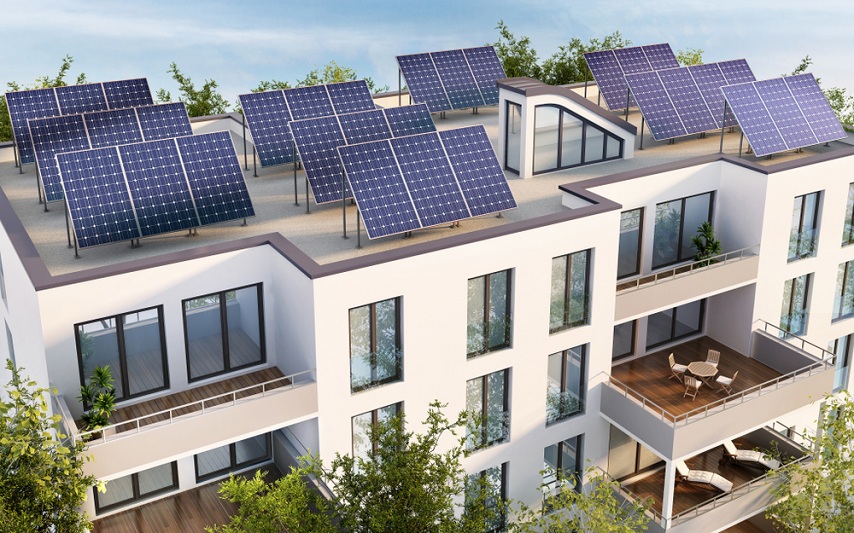No need to worry if you don't own a roof of yours. There are many other methods of solar panel installation.
Solar power is one of the most cost-effective ways to generate electricity without causing any harm to the environment.
If you're an owner of your own home, installing a solar power system is relatively simple: You just need to put up a solar power system on your roof and generate clean energy for free.
For those of us living in apartments or rentals, going solar is not as easy as it might seem. However, don't worry: even if you don't have your own roof, you can still produce clean solar energy and potentially even lower your electric bill and emit fewer greenhouse gases.
This article explains four different alternatives of solar energy available for apartment residents and tenants.
Few Things to Consider
Installing solar panels in apartments
You can install a small and portable solar panel that'll sit outside on a balcony or someplace else with good sunlight access. These systems produce an average of 0.3–1.5 kWh of solar energy per day.
Installing roof solar panels on a rented property
Installing solar panels on roofs requires a lot of upfront investment, so it would be best if you get your landlord's approval first.
We don't think it makes sense to spend so much on a house that you don't own. The best thing would be to persuade your landlord to get a solar system installed.
Renting or leasing solar panels for a rental home
Only the owner of the property can sign a contract for renting or leasing a solar power system.
Solar lease and rental contracts usually last longer than one year, so there's a huge financial punishment if you remove the solar panels before the end of the agreement period.
1. Request Your Homeowner for Solar Panel Installation
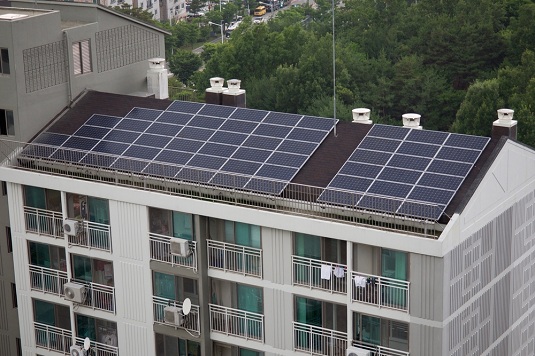
If you're renting a house, then this option may be applicable to you.
You can persuade your landlord that they would benefit greatly from installing solar panels.
Meet with your landlord and discuss tell them about the following:
- Many states offer tax incentives and net metering credits for excess electricity generated by solar panels. Solar panel owners may be eligible for financial assistance through various programs.
- Adding solar panels will increase the value of your property in the long term. According to Zillow, properties with solar technology sell for 5% more than similar properties without them. Additionally, because they will decrease your monthly electricity bill, it will be easier to rent out your apartment.
Before bringing up the topic of solar energy, we suggest doing some background reading on the prices of solar power in your area. It will help you prepare for the meeting by giving you some ideas of things to say.
2. Go for a Portable Solar System
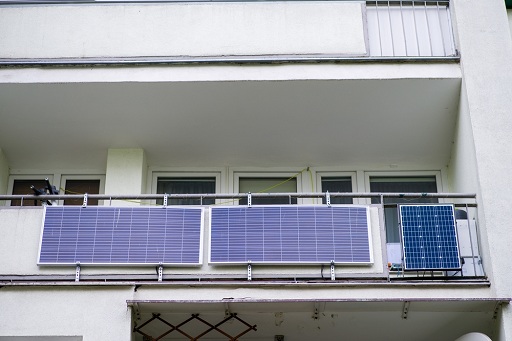
These days portable solar panel systems have become increasingly affordable and more energy efficient. They have become an easy way to get power when you're away from home and are widely adopted by RV owners and campers.
Because they don’t require any special equipment, they can be used anywhere with enough sunlight, so they can even be used in apartments or rental homes. These days, it’s easy to find smaller solar kits that can be mounted on balconies, windows, and railings
The wattage of these systems is generally between 100-300 and they can produce daily energy ranging between 0.3 kWh to 1.5 kWh. It can power several electronic devices, including smartphones, laptops, and small household gadgets.
Pros of portable solar panels
- A benefit of portable solar panels is that they can be easily connected to an external battery pack so that you can generate power whenever you want.
- One additional benefit is that some of these compact solar panels also qualify under the 30 percent federal tax credits, which will significantly lower their price.
- The best thing about portable solar systems is that once you've moved into a new house, you can bring them with you, which is a tough task for homeowners who own rooftop solar panels.
Cons of portable solar panels
Portable solar panels come with some drawbacks, so you need to know them before buying them.
Portable systems tend to generate less electricity than stationary solar systems. It means you'll need to use electricity generated by the utility company to fulfill your electric requirements.
Portable inverters and battery systems aren't cheap. If you want high-end equipment, they can be quite pricey. The more compact a solar panel system is, the more will be per watt cost.
3. Opt for Community Solar Programs
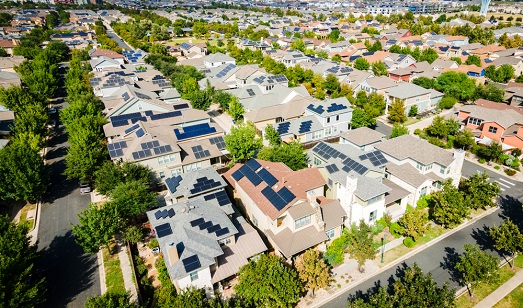
You might want to check out local community solar power initiatives available near you. Community Solar projects allow individuals in a specific community or region to collectively buy a solar power system.
Instead of doing solar panel installations yourself, you pay someone else for doing it. The electricity generated by the system is fed into your local electrical grid.
Virtual net metering allows you to cut your electricity bill on the basis of your contribution to the community solar project.
It allows you to save money by using solar energy even if you live in a rental apartment/house. If you remain within the boundaries of the solar farm, you're likely to save money by participating in the project. It gives you more flexibility and lets you relocate from one rental property to another when necessary.
As you're working together with a community, you can take advantage of the economies of scaling up. Bigger solar plants can produce electricity at less cost than individual home solar panels because they need fewer panels.
One of the drawbacks of using a solar power system is that not every location has access to them. There are actually only very less states where they're legal. Even if they're allowed, they're huge undertakings that require permission from many shareholders, so it can be hard to get them started.
4. Purchase Green Energy
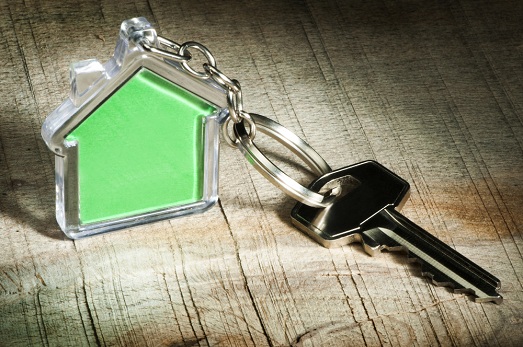
If you can't directly produce solar energy, you can always purchase green energy from an alternative source.
According to the EPA, green power is the most environmentally beneficial form of renewable energy.
The EPA considers solar energy to be a source of green energy.
There are two ways to do this:
A. Purchase green energy from utilities
Most utility companies provide green power programs for their residents.
Green rates or green prices assure consumers that a certain percentage of their electricity comes from renewable sources of energy.
Buying green power isn't going to save you any money. Green power typically costs more than regular power prices. However, this option does allow consumers to feel good that they've reduced their carbon emissions by choosing an environmentally friendly product.
B. Buy Renewable Energy Certificates
You could also purchase renewable energy certificates (RECs), which are often referred to as RECs.
A REC verifies that the electricity used by your home came from a sustainable source. One REC represents one megawatt hour of power, while an average U.S. house consumes about 11 megawatts per hour.
You can usually get RECs from your utility company by signing up for their green rate plan. However, you can also purchase them directly from an approved retailer.
Solar Installation is Feasible in a Rental Property or Apartment
Most people think that if they want to go solar, they need to have solar panels installed on their roofs.
However, as we’ve outlined above, it is entirely feasible for people living in rented houses or apartments to enjoy the benefits of solar power.
You can choose between buying a portable solar energy generator or sharing solar energy generated by others using innovative ways such as community renewable energy, utility green power, or Renewable Energy Credits (RECs).
More solar power means fewer emissions from burning coal and oil. You could go solar for any number of reasons, but whatever you decide to do, you'll be making a positive impact on the environment.

